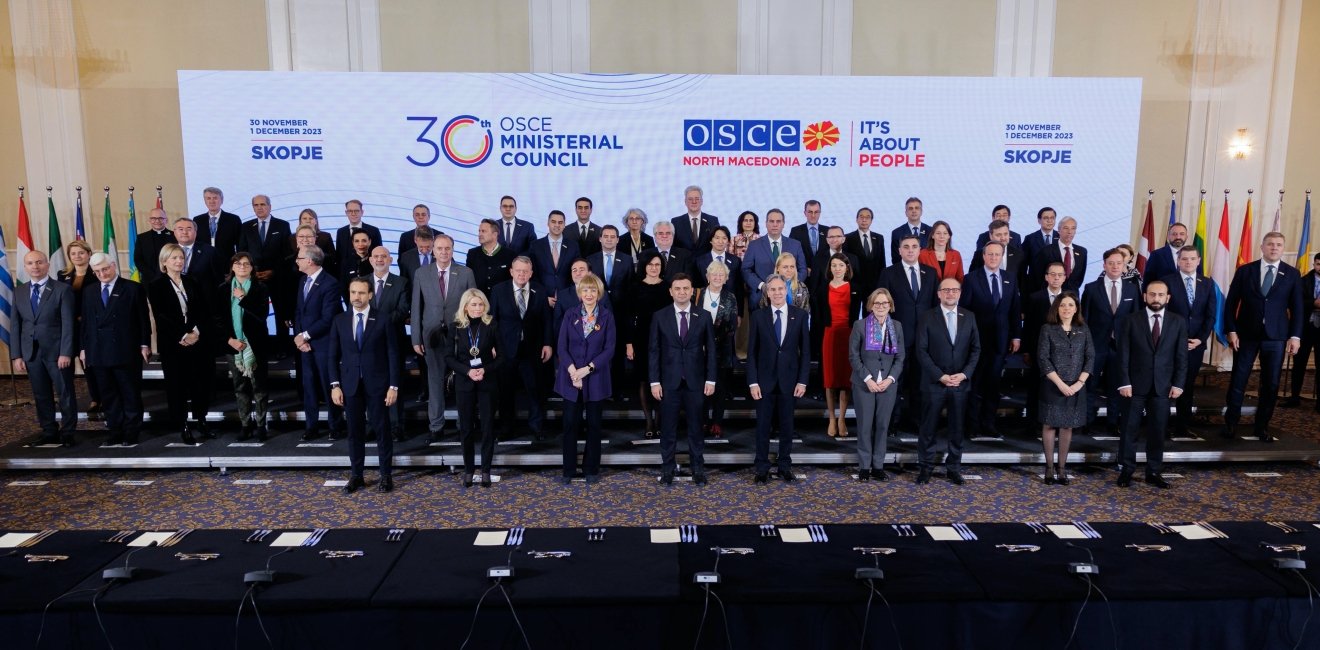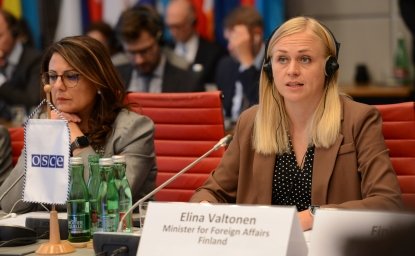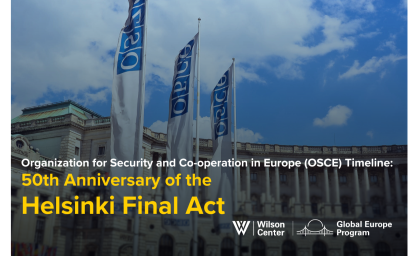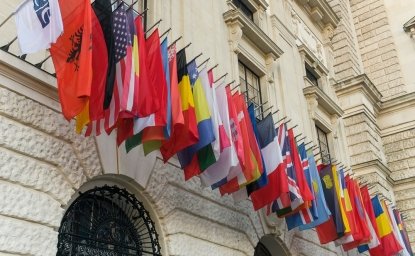Representatives from most of the 57 participating states of the Organization for Security and Co-operation in Europe (OSCE), including Secretary of State Antony Blinken, met last week in Skopje, North Macedonia for the annual Ministerial Council meeting. The participation of Russian Foreign Minister Sergey Lavrov led some foreign ministers to skip the event. At the top of the agenda was a decision on which country would follow North Macedonia and assume the rotating chair for 2024. In the run-up to the ministerial, major questions loomed large about the continued viability of the organization and its future. With no end to Russia’s war against Ukraine in sight, the wavering on tangible support for Ukraine within both the US and the EU, and a continued lack of consensus on the OSCE’s formal budget, stakes were high. By the end of the ministerial, the power of the OSCE itself as a convening forum on critical issues demonstrated the continued value of the organization and the OSCE lives to fight another day.
The OSCE, headquartered at the Hofburg Palace in Vienna, is the largest regional security organization in the world and the second largest multilateral organization after only the United Nations. Originally established as the Conference of Security and Co-operation in Europe (CSCE), since the end of the Cold War, the disintegration of Yugoslavia, and the collapse of the Soviet Union, the OSCE (since 1994) has been an essential body for encouraging fledgling democracies of Europe and Central Asia to stay on track. This year, the OSCE has been chaired by the Republic of North Macedonia, steering the work of the organization to focus more on the tangible results the organization has for the people it serves. North Macedonia’s Foreign Minister Bujar Osmani, the Chair-in-Office (CiO) responsible for implementing the agenda, has presided over one of the most fragmented and challenging security environments since the end of the Cold War. The OSCE operates as a consensus-driven organization, and Russia–with equal standing of all 57 participating states–has obstructed both the OSCE’s budget process since 2021 and the organization’s efforts to appoint a new chair. As the clock ticked toward the end of the year, Russia refused to agree to Estonia–a NATO member state–taking over as CiO as anticipated for 2024.
Despite this controversy, the convening power of the OSCE won out. That ability will be valuable in the years ahead.
The lack of a formal chair to steer the work of the organization after December 31 posed a major existential challenge. This would have been the first time in the nearly five-decade-long history of the OSCE that a consensus on CiO could not be reached. Ultimately, all agreed in Skopje that Malta will have the Chair for 2024. With just a month to prepare, the year ahead will be challenging for Malta, one of Europe’s smallest states. Normally countries have two years’ advance notice to prepare for their chair. Finland is set to chair the OSCE for 2025–owing to the organization’s principles rooted in the Helsinki Final Act, which will celebrate its 50th anniversary in 2025. That anniversary will be a critical inflection point for the value of the organization and its potential role in supporting Ukraine in a post-conflict capacity.
The U.S. and Russian representatives, Blinken and Lavrov, did not meet in Skopje; Blinken left for Israel before Lavrov arrived. Although this was expected, it’s a reminder that the OSCE is a platform that can still bring together both the United States and Russia–along with other key players–for engagement on the range of issues across the three pillars of the organization, the political-military, the economic and environmental, and the “Human Dimension” of social, civil, and environmental issues. Last year’s OSCE ministerial in Łódź, Poland, made headlines when Poland (an EU member) refused to allow Lavrov–as an EU-sanctioned individual–to participate. Lavrov’s presence this year in Skopje (not yet in the EU) again proved controversial. Many ministers or their representatives used the ministerial to condemn Russia’s invasion of Ukraine; and foreign ministers from Ukraine, Estonia, Latvia, Lithuania and Poland refused to participate, but sent representatives. Despite this controversy, the convening power of the OSCE won out. That ability will be valuable in the years ahead.
In his closing remarks, Foreign Minister Osmani said that “the light of the OSCE has not been extinguished.” Despite attempts by Russia to destabilize the organization, the OSCE remains relevant and necessary for the future security and peace in Europe and Eurasia. A post-conflict Ukraine will need a functioning OSCE’s support. The Skopje ministerial met its goals of agreeing a new chair, renewing the roles of top OSCE officials (including Secretary General Helga Schmid), and ensuring that the OSCE continues to function as a valuable diplomatic tool kit grounded–in principle–on a set of shared values to which all participating states, at least rhetorically, ascribe.








